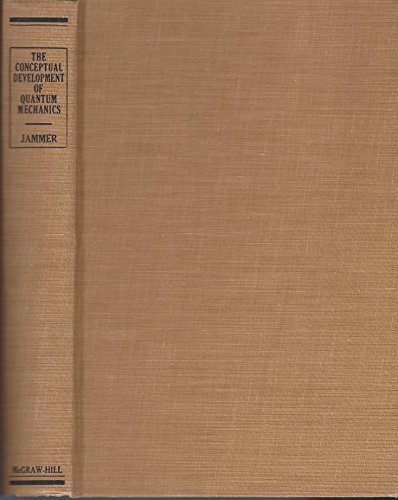The Conceptual Development of Quantum Mechanics download
Par dunlap ross le jeudi, septembre 29 2016, 22:21 - Lien permanent
The Conceptual Development of Quantum Mechanics by Max. Jammer


The Conceptual Development of Quantum Mechanics Max. Jammer ebook
ISBN: 0070322759, 9780070322752
Format: djvu
Page: 412
Publisher: MGH
The conceptual duality between the subset and partition lattices can also be expressed using the metaphysical notions of “substance” and “form.” TwoLattices. I'm thoroughly enjoying relearning the concepts of quantum mechanics in their proper place as part of a developing train of thought. Yet physicists still argue about it, some contending that the onetime consensus interpretation (named for Copenhagen, where the Danish physicist Niels Bohr developed it), should be abandoned. The basic system of ordinary logic, which is now almost invariably called “propositional” . It is often claimed that quantum mechanics or quantum phenomena disprove the principle of causality or at least cast doubt on whether it is a logically defensible axiom. This interpretation of QM grew out of work in mathematical logic that was developed without any thought of a connection with quantum mechanics. We show in the paper, that is indeed the message of quantum mechanics. Of course, such surveys are mostly just for fun — the views of a particular group of experts at one conference don't necessarily reflect the entire quantum physics community. Their relations to a number of key experiments and thought experiments in the history of quantum physics are An encyclopedic treatment of conceptual quantum mechanics as seen from a very up-to-date point of view --Tom Toffoli. This is precisely because post-modernism in its various forms arose to deny the validity of scientific Marxist descriptions of historical processes as well as the prevailing social democratic concepts of society – “there is no such thing as society”, former UK prime minister Margaret Thatcher once mistakenly Einstein made a major contribution to the development of quantum mechanics through his paper on quantum leaps in 1905, for which he won the Nobel prize. An advanced treatise is the monograph The Conceptual Development of Quantum Mechanics by Max Jammer (New York: McGraw-Hill, 1966). In 1905, Einstein proved the existence of atoms and molecules, validated the concepts of quantum mechanics, and developed the theory of special relativity: E=mc2.